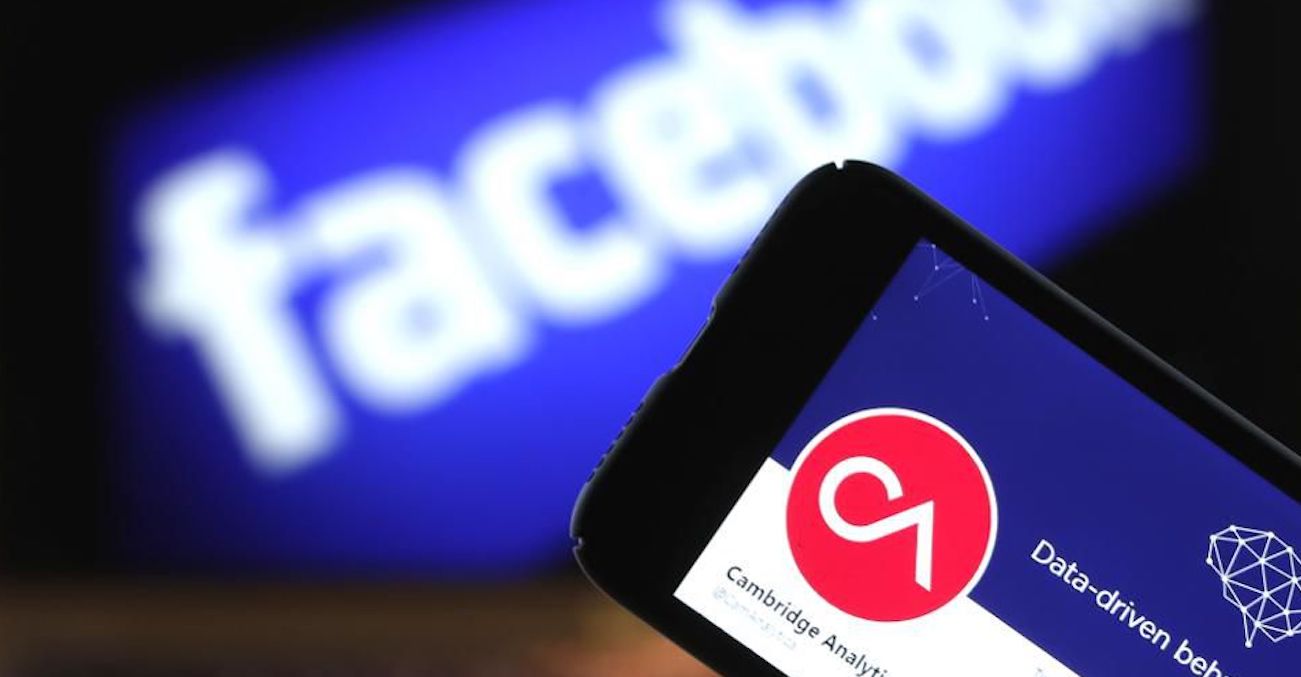Cambridge Analytica and the Next Australian Election

Last week’s revelations about Cambridge Analytica and Facebook are continuing to reverberate around the world. With an Australian federal election due within a year, the impact could hit very close to home.
Cambridge Analytica’s services have been linked to the Brexit vote and the American election. On one level this is understandable, elections are about deploying messaging to psychologically influence voters. Micro-targeting slices of the electorate on niche issues has long been part of most political parties’ campaign strategies. Why should using the services of Cambridge Analytica be any different? And yet it is, by a very wide margin.
Even if we side-step the harvesting of 50 million Facebook profiles, and the associated implications of this colossal ethical and privacy breach, there are far deeper and much more insidious issues at play. The past few years have seen democratic elections become geopolitical battlegrounds. Foreign powers, and Russia in particular, have conducted information operations designed to undermine democratic processes in pursuit of their national interests.
The work of Cambridge Analytica not only monetises these kind of operations, it shows how willing and able entities like Facebook are in influencing elections. This is just the beginning, an indication of the scale and scope of this emergent capability. The structural disparities between information flows and the landlocked ability to vote have created an unprecedented opportunity for international political arbitrage. This is an attractive value proposition for those states that have the capability to exploit it, but also for political parties that can afford the services of an entity like Cambridge Analytica.
Without doubt, the biggest loser in this is the individual voter. Where elections were once a contest fought by local personalities with persuasive rhetoric, now these contests are underpinned by micro-targeted political advertising through social media channels. They are contests that marshal the resources of multinational corporations to collect, analyse and appeal to the deep-seated cognitive biases of the voting-age electorate; biases that the electorate may not even be aware of, and that may have no actual link to the policy platforms of the competing parties.
This is not what democracies were designed for, it’s not what the print media were designed for, it’s not even a domain the broadcast media cope with very well. They are too slow and their audience’s location, credit card purchases and digital history can’t be number crunched by purpose-built artificial intelligence. They are, by any normal measure, out of date and out of touch with their audience’s key data points.
This is why, over the coming weeks, these 20th century channels of communication will go for the throat of Cambridge Analytica, and it’s why they will aim for the achilles of Facebook. But none of this will matter if the underpinning legislative framework of democratic societies like Australia isn’t able to defang the emerging capability of micro-targeted psychological influence. It represents a genuine political risk for democracies and Australia will soon be in the firing line.
Yet the Australian political class stands to gain from deploying these capabilities in the next election. Social media micro-targeting solves the problem of reaching the young demographic that lives in an apartment with no landline, a demographic that can’t be door-knocked or cold called. Even though allowing this kind of advertising is known to open the door to foreign actors, odds are our political parties will use it while simultaneously affirming their national security credentials.
This calls into question where the real threat of foreign influence is coming from. Australians from every demographic have uploaded their tastes and preferences into the cloud, but the 18-35 bracket has done this more than most. With each new election a host of digital natives reach voting age. Why should their childhood and adolescent data points be used to influence them? Shouldn’t these be off limits? They have used these social media tools in good faith, yet their data is now being used against them and the countries they vote in.
This is not just an ethical question, it’s a question of national security. For, if unchecked these tools will allow foreign actors to undermine Australian democratic processes in the next election and the election after that. Entities such as Cambridge Analytica and Facebook are enabling this threat, profiting from it and then being obstructive during the investigation of it. Australia has advance warning of what is coming, yet it remains an open question what the country will do about it. The ways of the world have changed; it’s time to acknowledge that and provide for the adequate defence of the 2019 election.
What does defending the underpinning processes of a democratic election even look like? At its core, it means treating all communication channels consistently and that means regulating all channels consistently. The idea of Facebook being regulated as a media channel has long been anathema to the organisation, yet by any measure they are the largest media organisation on the planet. Arguments that “the channel is a platform” should be dismissed as the tall-tale sophistries they really are.
Australia also needs to interrogate the rules (or lack thereof) governing micro-targeted psychologically influential advertising on social media. That means opening up the ethical Pandora’s Box of whether we want or need artificially intelligent agents that can decode and influence our cognitive biases. This technology is still in its infancy and, more importantly, the pool of data it feeds on to grow and know is also in its infancy.
Every year that this problem goes unresolved is another year of data these algorithms can crunch, can learn from, can imitate. That’s the thing about artificial intelligence, it needs to feed, and every election that comes and goes is but another meal. How long before a corporation uses this capability because a political party’s policies represent a significant risk to their interests? How long before these algorithms cross an inflexion point of precision and persuasion that gives their wielders an undemocratic amount of influence?
Meanwhile, we already know much about how Russia engages in this domain. We know how it cannibalises the democratic capabilities of social media to promote its interests. It’s not the only state that stands to gain from exploiting the political arbitrage inherent in free-flowing information. Capabilities can take decades to build but intentions can change overnight. We need to act now to ensure it is as difficult as possible for other states to digitally intrude on and influence the outcomes of Australian elections.
Instead of a race to the bottom enabled by the short-sighted quest for a quick win at the next election, Australia needs some considered and measured bipartisan reform in the way our elections are run. We need reforms that protect an individual’s data profile and ensure their subconscious biases aren’t preyed on by agents of foreign influence. We need to ensure that the revelations of Cambridge Analytica aren’t domestically repeated post the 2019 election.
Thom Dixon is the vice president of the AIIA NSW and a commissioning editor for Australian Outlook. He works as the research engagement and impact coordinator within the Office of the Deputy Vice-Chancellor (Research) at Macquarie University and conducts policy research with Remi AI.
This article is published under a Creative Commons Licence and may be republished with attribution.





